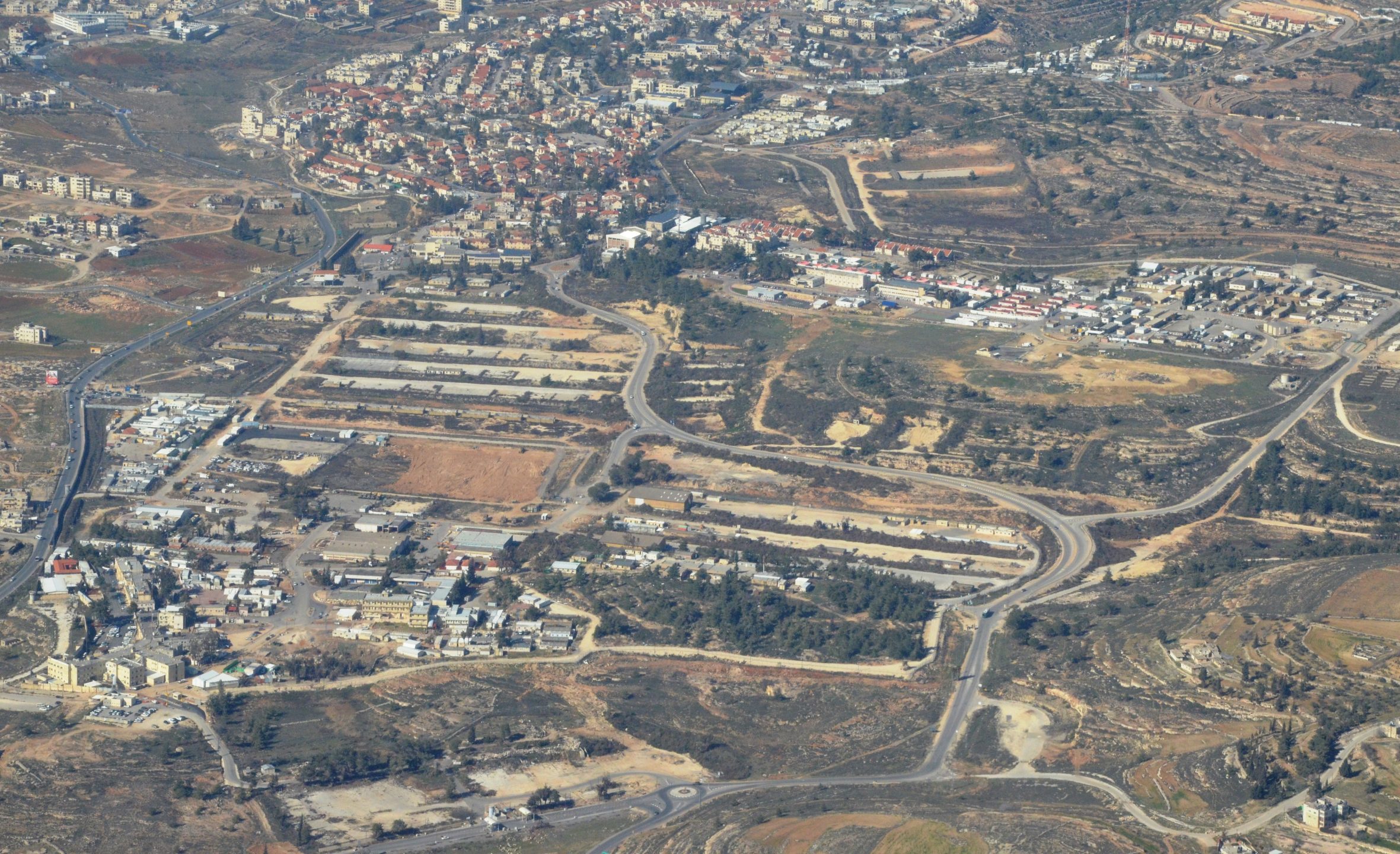Publications
INSS Insight No. 1668, December 13, 2022
The proposed transfer of the Civil Administration and the Coordination of Government Operations in the Territories (COGAT) from the authority of the Minister of Defense to the authority of a minister from the Religious Zionist Party is intended, in the eyes of the incoming government, to correct the injustice to the settlement population and to implement the conditions for the application of Israeli law in the Jewish communities in the West Bank. Since 1967 Israel has refrained from declaring sovereignty over the West Bank territories, claiming the impermanence of its control over the entire territory, which was administered in accordance with the laws of occupation of international law. The redirected subordination of the Civil Administration, from the military commander – i.e., the GOC of the Central Command – and the Minister of Defense to subordination to the Minister of Settlement, along with the delegation of relevant powers to other government offices, means an end to the existing slow annexation, and its replacement by the accelerated annexation of the territories.
Toward the formation of the new government, an agreement was reached between Prime Minister-designate Benjamin Netanyahu and the Religious Zionist faction, whereby a minister will be appointed in the Ministry of Defense (not the Minister of Defense), who will be in charge of the entire settlement issue in the West Bank and will have full responsibility for the areas under the Coordinator of Government Operations in the Territories (COGAT) and the Civil Administration. Under this minister, a settlement administration will be established as an operational headquarters. Indeed, during the election campaign, Religious Zionism leader Bezalel Smotrich called for the abolition of the powers of the Civil Administration: "The Civil Administration must be dismantled, and sovereignty promoted," he declared. This demand follows bills Smotrich submitted in the past regarding the abolition of the Civil Administration. In the view of the Religious Zionist Party, the new structure is intended to "rectify the injustice done to the settlement population." For their part, Likud spokesmen clarified that "after years of discriminating against the settlers, the government led by Netanyahu will correct a historical injustice and lead an equal citizenship reform for the residents of the West Bank, without changing the political or legal status of the territory." This is the reason it was determined that the powers of the new minister will be under the umbrella of the Ministry of Defense. The appointments and decisions of the minister in charge regarding COGAT and the Civil Administration will be made in full coordination and with the consent of Prime Minister Netanyahu. In the agreement between Netanyahu and the Religious Zionist faction, the place and status of the Minister of Defense in the decision making process regarding settlement activity is unclear.
The Civil Administration was established in 1981 and is an executive arm subordinate to the GOC of the Central Command, who is the sovereign in the West Bank. He is professionally guided by COGAT as part of the Ministry of Defense, and is entrusted with the implementation of the policy vis-à-vis the population in the West Bank, Jews and Palestinians alike. Following the Oslo Accords, some of the responsibilities of the Civil Administration were transferred to the Palestinian Authority, including all civil powers in Areas A and B as well as personal civil powers in relation to Palestinians in Area C (health, education, and welfare). The Civil Administration is entrusted with managing the lives of the citizens in Area C – some 400,000 Israelis and about 280,000 Palestinians. It is responsible for all the authorities related to infrastructure in Areas C, including the regulation of real estate issues, planning, and construction issues; electricity and energy supply; transportation; environmental protection; and more. In addition, the Ministry of Defense is responsible for security and civil coordination with the Palestinian Authority and for work permits and approvals for the entry of Palestinians into Israel. The Civil Administration operates in accordance with international law and the military grip on the territory – as proof of the temporary nature of the control over the territories in the West Bank; Israel claims this as proof that it meets the requirements of international law. However, Israel is subject to international criticism regarding the legality of the settlements and the message their expansion sends: that the hold over the territory is not intended to be temporary, but rather, permanent.

On a practical level, in most areas of life the settlement population operates under a legal framework that parallels the situation in Israel and vis-à-vis the government ministries in Israel. The main exception to this, for which the executive body is the Civil Administration, is the control in the areas of real estate, planning, construction, and infrastructure, which are not subject to government ministries, but to the Higher Planning Council of the Civil Administration. This means that the processes of planning, building, and developing the infrastructure are conducted differently than within the territories of Israel, and according to the local population, are subject to bureaucratic complexity that requires the approval of the Minister of Defense. The coalition agreement removes the authority from the Minister of Defense and transfers it to the Minister of Settlement, who has most of the administrative authority related to handling the requests of the Jewish residents. The coordination and liaison administration with the Palestinian Authority systems deployed throughout the West Bank will remain subordinate to the commander of the Central Command and the Minister of Defense.
Moves to apply Israeli law to the settlements, together with the transfer of powers from the Ministry of Defense and Central Command to government ministries, will strengthen the claims already sounded against the State of Israel in the international arena regarding the illegality of the settlements, the illegal annexation of the territory, and the establishment of an apartheid regime. These will increase and be sharpened because Israel will establish two different legal systems that manage the lives of the Jewish and Palestinian residents in the disputed territories, without a political process aimed at reaching an agreement on their future. These charges stand to be anchored in the advisory opinion that is expected to be requested soon from the International Court of Justice, and this can be expected to be used as additional ammunition in the international campaign against Israel. The moves are also expected to join the list of arguments of those trying to convince the Prosecutor of the International Criminal Court to advance the investigation into Israel, which inter alia deals with the "crime of the settlements," as defined by the court.
Significance and Implications
Israel has not declared sovereignty over the West Bank territories. In terms of international law, the territory is under the laws of occupation and all the powers that the head of the Civil Administration receives are given by the commander of the Central Command, who is in practice the sovereign in the territory. The subordination of the Civil Administration to the Minister of Settlement and the subordination of the areas it oversees to other government ministries connotes that this is no longer a slow process of annexation, but rather, accelerated annexation.
In face of increasing and extensive criticism from the international community, Israel will find it difficult to provide explanations and claim that the future of the West Bank has not yet been decided – the main argument that has served Israel since 1967, over the 55 years of its control of the territory. Similarly, throughout these years Israel has claimed that the settlement enterprise does not constitute a violation of international law because the future of the territory has not been decided.

The change heralded by the coalition agreement is not semantic but reflects the design of a new situation. It aligns the governing mechanisms in the West Bank with those within Israel proper, and in the process strengthens Israeli control over all Area C territories. These are preliminary steps toward the full annexation of the territory. Moreover, following the subordination of the supervision unit of the Civil Administration to a minister from the Religious Zionist party, a fundamental change in its operation is expected. The unit is responsible for enforcing planning and construction laws in the West Bank, and also works against illegal construction by both Israelis and Palestinians. However, the measure is intended to increase enforcement significantly against illegal Palestinian construction, and at the same time to authorize illegal Israeli outposts. In order to facilitate the approval of the outposts, the Israeli government tried in the past to approve the Regulation Law, but it was invalidated by the Supreme Court on the grounds that the law infringes on the property rights of the Palestinians (presumably a similar law will be passed after legislation of the override clause). To the extent that Palestinian activity in the area is limited and the demolition of illegal Palestinian construction increases, along with the expansion of the settlement enterprise, violent Palestinian resistance is expected that will lead to a security escalation, which might spiral out of control and lead to many casualties on both sides. Such an escalation could create tension in the relations between Israel and its allies as well with the countries of the Abraham Accords, in particular given that there will likely be many casualties on the Palestinian side.
At the same time, in the new situation there is much potential for complication given the multitude of ministers and officials involved in the administration of the West Bank territories. This would occur precisely in a period of instability and increasing explosive potential due to the control of the territory by military force, friction between the Jewish and Palestinian populations, the weakening of the Palestinian Authority and its security apparatuses, the divisions of the Palestinian camp, and its processes of disintegration in preparation for the day after President Mahmoud Abbas departs the stage.
For political reasons, devoid of reference to security-policy consequences, the reality of the loss of coordination will ensue, to the point of systemic chaos in judgment and the ability to operate the security bodies and the government in a synchronized manner while intelligently examining the consequences of various decisions and their implementation. Therefore, a government decision is essential regarding the regulation of the power relations between the (many) parties involved and the formulation of clear decision making processes, which will take into account and weigh all the necessary considerations – security, political, civil, settlement, and infrastructural.
The change in chain of command will undermine the existing system of balances between all the elements operating in the West Bank, headed by the GOC of the Central Command. Increasing friction is expected between the political system and the army and the security establishment. The main points of friction today between the representatives of the settlements and the security establishment concern illegal construction in the settlements, seizure of land to establish outposts in the area, damage to Palestinian people and private property, and a demand to stop Palestinian access and spillover to Area C. A professional stance by the army commanders and the heads of the security establishment, which opposes, based on broad and complex considerations, the decisions that the Settlement minister will make, will receive a political spotlight and cause a political confrontation. Against this background, there is a risk of delegitimization processes of the army commanders and ISA chiefs and further dismantling of the administrative structure and weakening of the professional command system and gatekeepers, until they come to the service of the settlements enterprise and avoid imposing restraints and restrictions.



